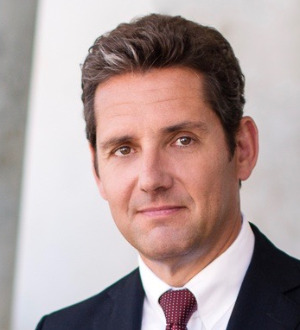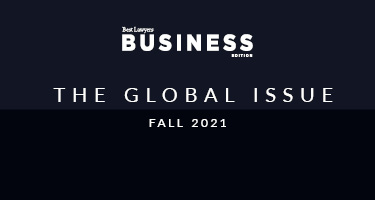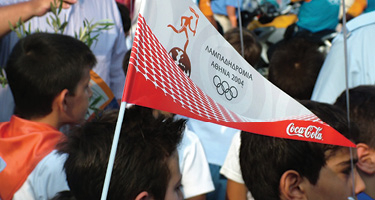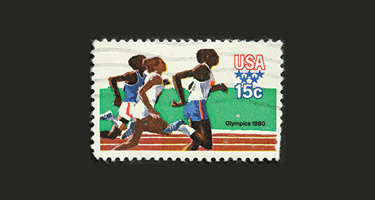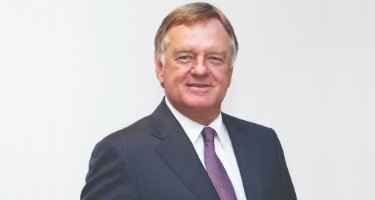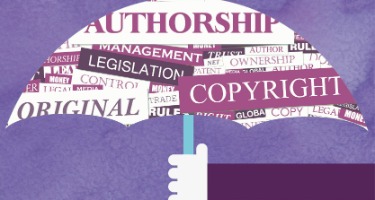Insight
Registering Advertising Slogans as Trademarks in the United States and Europe
Brand owners seeking to obtain exclusive rights in their advertising slogans for campaigns encompassing the United States and Europe should bear in mind certain well-established principles.

As brand owners seek new and innovative ways to distinguish themselves and their goods or services both in traditional and new media, issues concerning the global registrability of advertising slogans need to be revisited when rolling out any new campaign. Brand owners seeking to obtain exclusive rights in their advertising slogans for campaigns encompassing the United States and Europe should bear in mind certain well-established principles.
Advertising Slogans as U.S. Trademarks
A slogan is defined in the Trademark Manual of Examining Procedure Section 1213.05(b)(i) as “a brief attention-getting phrase used in advertising or promotion” and “a catch phrase used to advertise a product.” Advertising slogans can be registered as trademarks in the United States as long as they are neither descriptive nor merely informational and used in a trademark sense, rather than merely ornamentally.
Not Descriptive or Informational
As is the case with any trademark, a slogan cannot be merely descriptive, laudatory, nor simply informational if it is to be registrable and to function as a trademark. The Trademark Trial and Appeal Board (TTAB) of the United States Patent and Trademark Office has observed that there are certain slogans that are so common and laudatory that they are inherently incapable of functioning as trademarks. See In re Boston Beer Co. L.P., 198 F.3d 1370, 53 USPQ2d 1056 (Fed. Cir. 1999); In re Carvel Corp., 223 USPQ 65 (TTAB 1984); and In re Wakefern Food Corp., 222 USPQ 76 (TTAB 1984).
However, and again as with traditional trademarks, a descriptive slogan can be registered and function as a trademark if it has acquired distinctiveness. For example, the slogan THE GREATEST SHOW ON EARTH was found to be a protectable trademark because its owner, Ringling Bros.-Barnum & Bailey Combined Shows, Inc., had created secondary meaning through its long (over 100 years in existence) and extensive ($10 million spent annually in advertising, and $50 million earned in income) use of the term and the widespread recognition the term had obtained in the marketplace (Ringling Bros.-Barnum & Bailey Combined Shows Inc. v. Celozzi-Ettelson Chevrolet Inc., 855 F.2d 480, 483 (7th Cir. 1988)). Similarly, the TTAB had no trouble finding that the slogan THE KING OF BEERS for beers had not only acquired distinctiveness, but was famous, notwithstanding the possible laudatory meaning (Anheuser-Busch Inc. v. Goldstein, Opp. No. 106963, slip. op. (TTAB Mar. 30, 2000) (non-precedential)).
Nonetheless, there are some cases in which a slogan may be so familiar and so commonplace that secondary meaning simply cannot be achieved. For example, Volvo was unable to obtain a registration for the phrase DRIVE SAFELY because it was so common and as such could not acquire distinctiveness. Rather, it was “the type of the phrase that is uttered on a daily basis, almost automatically, with no thought, to others as they drive off in an automobile” (In re Volvo Cars of North America Inc., 46 U.S.P.Q.2d 1455, 1460 TTAB 1998). In other words, the term was not source-identifying, but rather informational. It would be perceived as an everyday, commonplace safety admonition.
Not Ornamental
Subject matter that is merely a decorative feature does not identify and distinguish a party’s goods and therefore does not function as a trademark. Slogans can sometimes be seen merely as decorative features. The key is often the manner of use of the mark. If it is set apart in an attention-grabbing way, and used consistently, it is likely to be seen as trademark use.
For example, in Selective Ins. Co. of Am. v. Smart Candle, LLC, 114 USPQ2d 1263 (8th Cir. 2015), the phrase “smart candle” was not deemed to be “attention-getting,” because it conveyed no information about the product and was used in product literature in a way that added no recognition beyond its use as a trade name, thus raising a question as to whether the party’s use was actual trademark, rather than ornamental, use. Similarly, in MicroStrategy Inc. v. Motorola Inc., 245 F.3d 335 (4th Cir. 2001), INTELLIGENCE EVERYWHERE was deemed not to be trademark use because the plaintiff failed to use “any ‘constant pattern’ or design to highlight” the term, such as using a distinctive font or color, or using the ™ designation, and otherwise failed to use the term to identify and distinguish the source of its products and services (245 F.3d 335, 342 (4th Cir. 2001)).
Even a slogan that is set apart using a distinctive font or color can be seen as merely ornamental. In the case In re T.S. Designs, Inc., (95 USPQ2d 1669 (TTAB 2010)), the applicant applied to register the phrase CLOTHING FACTS for apparel. The TTAB denied registration, holding that the applicant’s use of the slogan CLOTHING FACTS simply played on consumers’ familiarity with the United States Food and Drug Administration’s mandatory “Nutrition Facts,” but had no source-identifying function.
Still, size, manner and placement do matter when evaluating whether a slogan is seen by consumers as a source-identifier. The case Hudson Ins. Co. v. Colony Ins. Co. (97 USPQ2d 1306 (9th Cir. 2010)) involved a dispute between insurance carriers based on an underlying slogan infringement claim. The defendant had sold counterfeit National Football League Pittsburgh Steelers jerseys bearing the common law trademark/slogan STEEL CURTAIN. The court noted the manner of use and placement of the slogan on the jerseys, and had no trouble finding that the slogan served a source-identifying function.
It is clear that the USPTO recognizes the source-identifying value of distinctive and non-ornamental slogans, and will grant them the full protection afforded to federally registered trademarks. Trademark owners should note that many of the traditional trademark considerations in the United States, notably the use requirements, certainly apply. Slogans for goods should be placed directly on product packaging set apart in a distinctive font or color. Slogans for services should be used prominently in promotional materials.
Advertising Slogans as EU Trade Marks (formerly Community Trade Marks) in Europe
As previously reported by INTA, the registration of advertising slogans as word marks has long been accepted in European trademark practice. Recently, the requirements for slogans to be accepted as EU Trade Marks (EUTMs) have been subject to a number of court decisions. These decisions not only set out the general principles for the registrability of slogans as trademarks but also focused on some additional aspects.
Blackrock v. OHIM
Trademarks in the EU may not be registered if they are “devoid of any distinctive character” (Art. 7(1)(b) of the Community Trade Mark Regulation No. 207/2009 (CTMR)) or if they are descriptive, i.e., if they “consist exclusively of signs or indications which may serve, in trade, to designate the kind, quality, quantity, intended purpose, value, geographical origin or the time of production of the goods or of rendering of the service, or other characteristics of the goods or service” (Art. 7(1)(c) CTMR).
In Blackrock v. OHIM, the European General Court (EGC, judgment of Jan. 29, 2015, Case T-59/14, paras. 16 et seq.) summarized the settled European case law regarding the distinctiveness of advertising slogans under Article 7(1)(b) CTMR. According to this settled case law, the trademark must serve to identify the goods or services with respect to which registration is applied for as originating from a particular undertaking, and thus to distinguish those goods or services from those of other undertakings. That distinctive character must be assessed by reference to the goods or services with respect to which registration has been applied for and by reference to the relevant public’s perception of the mark.
Where marks consist of advertising slogans, no stricter criteria may be applied for the purposes of assessing the distinctiveness of such marks than those applicable to other marks. In particular, an advertising slogan cannot be required to display “imaginativeness” or even “conceptual tension which would create surprise and so make a striking impression” in order for such a slogan to be distinctive. Furthermore, the mere fact that a mark is perceived by the relevant public as a promotional formula that could in principle be used by other undertakings is not sufficient in itself to deny distinctive character. Advertising slogans can be perceived by the relevant public both as a promotional formula and as an indication of commercial origin of the relevant goods and services. The fact that the mark is at the same time understood—perhaps even primarily understood—as a promotional formula has no bearing on its distinctive character.
In applying these principles in Blackrock vs. OHIM, the EGC confirmed the contested decision of the European Union Intellectual Property Office’s (EUIPO, formerly OHIM’s) Board of Appeal, according to which the Community Trade Mark Application (CTMA) INVESTING FOR A NEW WORLD, which was filed for several financial services contained in Classes 35 and 36 of the Nice Classification, was devoid of distinctive character.
As regards the definition of the relevant public, the EGC pointed out that it is “apparent from well-established case-law, the level of attention of the relevant public may be relatively low when it comes to promotional indications, whether what is involved are average end consumers or a more attentive public made up of specialists or circumspect consumers, even if the services concerned are financial and monetary services.” According to the EGC, the degree of specialization of the relevant public and its level of attention “cannot have a decisive influence on the legal criteria used to assess the distinctive character since such an assessment is dependent upon the overall impression created by the mark.” Although it is true that the level of attention of specialists is higher than that of the average consumer, it does, according to the EGC’s decision, “not necessarily follow that if sign has a weaker distinctive character that is sufficient to allow that mark to be registered where the relevant public is specialist” (Blackrock v. OHIM, para. 28).
The EGC further pointed out that the assessment of distinctive character must be based on the overall perception of the mark by the relevant public. According to the court, this does not mean that one may not start by examining each of the individual features which make up the mark in question. Instead, “it may be useful to examine each of the components of which the mark concerned is composed” (Blackrock v. OHIM, para. 30). The EGC further stated that according to settled case law, the combination of common English words in a single trademark, “which is in conformity with the rules of English grammar, conveys a clear and unequivocal message which is immediately apparent and does not require any interpretative effort on the part of an English-speaking consumer.” Finally, the EGC concluded that the mark INVESTING FOR A NEW WORLD may be easily understood by the relevant public, in view of the common English words of which it consists, as meaning that the services offered are intended for a new world’s needs (Blackrock v. OHIM, para. 32).
In addition, the court confirmed the EUIPO’s finding that—given that the services covered by the CTMA are all related to activities connected with finance and have a close link with the word “investing”—the message conveyed by the expression “investing for a new world” was that, when purchasing the services in question, the money or capital invested creates an opportunity in a new world, which carries a positive connotation. The EGC further concluded that the mark constitutes a “banal expression, which the relevant public will not need to analyze for it to be understood.” Finally, the EGC confirmed EUIPO’s finding that the mark INVESTING FOR A NEW WORLD is devoid of distinctive character since “it does not constitute a play on words and does not include any imaginative, surprising or unexpected elements capable of conferring distinctive character on it in the mind of the relevant public,” and that, consequently, the “mark takes the form of an ordinary advertising message, which is devoid of any elements that might enable the relevant public to memorize it easily and immediately as a trade mark in respect of the services designated” (Blackrock v. OHIM, paras. 33 and 34).
It seems very questionable that these findings are in line with the general principle that an advertising slogan cannot be required to display “imaginativeness” or even “conceptual tension which would create surprise and so make a striking impression” in order for the slogan to be distinctive.
JP Divver v. OHIM
In JP Divver v. OHIM (judgment of Oct. 7, 2015, Case T-642/14), the EGC denied distinctiveness of the applied trademark EQUIPMENT FOR LIFE, filed for “luggage, wheeled luggage, wallets, purses, backpacks, pouches, bags, shoulder bags, travel bags, duffel bags and messenger bags, clothing, namely, caps, shirts, jackets, socks, shorts, pant[s] and sweaters, mail order, retail and computerized online ordering service in the field of clothing and luggage.” According to the court it should be understood that the relevant goods are very robust and last for a lifetime. The court confirmed the EUIPO’s finding that the expression “equipment for life” is immediately comprehensible by the relevant public even if it is not written in accordance with the rules of English grammar. In that regard, the EUIPO stated correctly, according to the court, that that public did not need special knowledge in order to make a sufficiently clear link between the mark and the goods and to perceive the clear, direct, immediate, and consequently, descriptive message of that mark. The court concluded that the mark EQUIPMENT FOR LIFE will rather be perceived as an unambiguous laudatory message suggesting positive characteristics of the goods and services concerned, given that, in general, consumers regard durability more as a desirable quality of such goods and services than as an indication of their commercial origin.
Be Prepared
Protecting slogans for global campaigns may require a lot of planning. Both in the United States and Europe, the more that such slogans are used to promote a product or service, the more weight such use may carry over time in terms of the trademark registration process, or possible claims under unfair competition and common law trademark law.
However, under unfair competition laws in Europe, the protection of unregistered slogans requires a certain degree of both distinctiveness and reputation (see judgment of the German Federal Court of Justice of Oct. 17, 1996, Case I ZR 153/94, Wärme fürs Leben [Warmth for Life], and judgment of Higher Regional Court of Frankfurt of Aug. 3, 2011, Case 6 W 54/11, Schönheit von innen [Beauty from Inside]). Because these requirements will only be tested by the relevant courts in infringement proceedings, it seems preferable to follow the trademark registration route in any case.
For more information, follow the source link below.
Advertising Slogans as U.S. Trademarks
A slogan is defined in the Trademark Manual of Examining Procedure Section 1213.05(b)(i) as “a brief attention-getting phrase used in advertising or promotion” and “a catch phrase used to advertise a product.” Advertising slogans can be registered as trademarks in the United States as long as they are neither descriptive nor merely informational and used in a trademark sense, rather than merely ornamentally.
Not Descriptive or Informational
As is the case with any trademark, a slogan cannot be merely descriptive, laudatory, nor simply informational if it is to be registrable and to function as a trademark. The Trademark Trial and Appeal Board (TTAB) of the United States Patent and Trademark Office has observed that there are certain slogans that are so common and laudatory that they are inherently incapable of functioning as trademarks. See In re Boston Beer Co. L.P., 198 F.3d 1370, 53 USPQ2d 1056 (Fed. Cir. 1999); In re Carvel Corp., 223 USPQ 65 (TTAB 1984); and In re Wakefern Food Corp., 222 USPQ 76 (TTAB 1984).
However, and again as with traditional trademarks, a descriptive slogan can be registered and function as a trademark if it has acquired distinctiveness. For example, the slogan THE GREATEST SHOW ON EARTH was found to be a protectable trademark because its owner, Ringling Bros.-Barnum & Bailey Combined Shows, Inc., had created secondary meaning through its long (over 100 years in existence) and extensive ($10 million spent annually in advertising, and $50 million earned in income) use of the term and the widespread recognition the term had obtained in the marketplace (Ringling Bros.-Barnum & Bailey Combined Shows Inc. v. Celozzi-Ettelson Chevrolet Inc., 855 F.2d 480, 483 (7th Cir. 1988)). Similarly, the TTAB had no trouble finding that the slogan THE KING OF BEERS for beers had not only acquired distinctiveness, but was famous, notwithstanding the possible laudatory meaning (Anheuser-Busch Inc. v. Goldstein, Opp. No. 106963, slip. op. (TTAB Mar. 30, 2000) (non-precedential)).
Nonetheless, there are some cases in which a slogan may be so familiar and so commonplace that secondary meaning simply cannot be achieved. For example, Volvo was unable to obtain a registration for the phrase DRIVE SAFELY because it was so common and as such could not acquire distinctiveness. Rather, it was “the type of the phrase that is uttered on a daily basis, almost automatically, with no thought, to others as they drive off in an automobile” (In re Volvo Cars of North America Inc., 46 U.S.P.Q.2d 1455, 1460 TTAB 1998). In other words, the term was not source-identifying, but rather informational. It would be perceived as an everyday, commonplace safety admonition.
Not Ornamental
Subject matter that is merely a decorative feature does not identify and distinguish a party’s goods and therefore does not function as a trademark. Slogans can sometimes be seen merely as decorative features. The key is often the manner of use of the mark. If it is set apart in an attention-grabbing way, and used consistently, it is likely to be seen as trademark use.
For example, in Selective Ins. Co. of Am. v. Smart Candle, LLC, 114 USPQ2d 1263 (8th Cir. 2015), the phrase “smart candle” was not deemed to be “attention-getting,” because it conveyed no information about the product and was used in product literature in a way that added no recognition beyond its use as a trade name, thus raising a question as to whether the party’s use was actual trademark, rather than ornamental, use. Similarly, in MicroStrategy Inc. v. Motorola Inc., 245 F.3d 335 (4th Cir. 2001), INTELLIGENCE EVERYWHERE was deemed not to be trademark use because the plaintiff failed to use “any ‘constant pattern’ or design to highlight” the term, such as using a distinctive font or color, or using the ™ designation, and otherwise failed to use the term to identify and distinguish the source of its products and services (245 F.3d 335, 342 (4th Cir. 2001)).
Even a slogan that is set apart using a distinctive font or color can be seen as merely ornamental. In the case In re T.S. Designs, Inc., (95 USPQ2d 1669 (TTAB 2010)), the applicant applied to register the phrase CLOTHING FACTS for apparel. The TTAB denied registration, holding that the applicant’s use of the slogan CLOTHING FACTS simply played on consumers’ familiarity with the United States Food and Drug Administration’s mandatory “Nutrition Facts,” but had no source-identifying function.
Still, size, manner and placement do matter when evaluating whether a slogan is seen by consumers as a source-identifier. The case Hudson Ins. Co. v. Colony Ins. Co. (97 USPQ2d 1306 (9th Cir. 2010)) involved a dispute between insurance carriers based on an underlying slogan infringement claim. The defendant had sold counterfeit National Football League Pittsburgh Steelers jerseys bearing the common law trademark/slogan STEEL CURTAIN. The court noted the manner of use and placement of the slogan on the jerseys, and had no trouble finding that the slogan served a source-identifying function.
It is clear that the USPTO recognizes the source-identifying value of distinctive and non-ornamental slogans, and will grant them the full protection afforded to federally registered trademarks. Trademark owners should note that many of the traditional trademark considerations in the United States, notably the use requirements, certainly apply. Slogans for goods should be placed directly on product packaging set apart in a distinctive font or color. Slogans for services should be used prominently in promotional materials.
Advertising Slogans as EU Trade Marks (formerly Community Trade Marks) in Europe
As previously reported by INTA, the registration of advertising slogans as word marks has long been accepted in European trademark practice. Recently, the requirements for slogans to be accepted as EU Trade Marks (EUTMs) have been subject to a number of court decisions. These decisions not only set out the general principles for the registrability of slogans as trademarks but also focused on some additional aspects.
Blackrock v. OHIM
Trademarks in the EU may not be registered if they are “devoid of any distinctive character” (Art. 7(1)(b) of the Community Trade Mark Regulation No. 207/2009 (CTMR)) or if they are descriptive, i.e., if they “consist exclusively of signs or indications which may serve, in trade, to designate the kind, quality, quantity, intended purpose, value, geographical origin or the time of production of the goods or of rendering of the service, or other characteristics of the goods or service” (Art. 7(1)(c) CTMR).
In Blackrock v. OHIM, the European General Court (EGC, judgment of Jan. 29, 2015, Case T-59/14, paras. 16 et seq.) summarized the settled European case law regarding the distinctiveness of advertising slogans under Article 7(1)(b) CTMR. According to this settled case law, the trademark must serve to identify the goods or services with respect to which registration is applied for as originating from a particular undertaking, and thus to distinguish those goods or services from those of other undertakings. That distinctive character must be assessed by reference to the goods or services with respect to which registration has been applied for and by reference to the relevant public’s perception of the mark.
Where marks consist of advertising slogans, no stricter criteria may be applied for the purposes of assessing the distinctiveness of such marks than those applicable to other marks. In particular, an advertising slogan cannot be required to display “imaginativeness” or even “conceptual tension which would create surprise and so make a striking impression” in order for such a slogan to be distinctive. Furthermore, the mere fact that a mark is perceived by the relevant public as a promotional formula that could in principle be used by other undertakings is not sufficient in itself to deny distinctive character. Advertising slogans can be perceived by the relevant public both as a promotional formula and as an indication of commercial origin of the relevant goods and services. The fact that the mark is at the same time understood—perhaps even primarily understood—as a promotional formula has no bearing on its distinctive character.
In applying these principles in Blackrock vs. OHIM, the EGC confirmed the contested decision of the European Union Intellectual Property Office’s (EUIPO, formerly OHIM’s) Board of Appeal, according to which the Community Trade Mark Application (CTMA) INVESTING FOR A NEW WORLD, which was filed for several financial services contained in Classes 35 and 36 of the Nice Classification, was devoid of distinctive character.
As regards the definition of the relevant public, the EGC pointed out that it is “apparent from well-established case-law, the level of attention of the relevant public may be relatively low when it comes to promotional indications, whether what is involved are average end consumers or a more attentive public made up of specialists or circumspect consumers, even if the services concerned are financial and monetary services.” According to the EGC, the degree of specialization of the relevant public and its level of attention “cannot have a decisive influence on the legal criteria used to assess the distinctive character since such an assessment is dependent upon the overall impression created by the mark.” Although it is true that the level of attention of specialists is higher than that of the average consumer, it does, according to the EGC’s decision, “not necessarily follow that if sign has a weaker distinctive character that is sufficient to allow that mark to be registered where the relevant public is specialist” (Blackrock v. OHIM, para. 28).
The EGC further pointed out that the assessment of distinctive character must be based on the overall perception of the mark by the relevant public. According to the court, this does not mean that one may not start by examining each of the individual features which make up the mark in question. Instead, “it may be useful to examine each of the components of which the mark concerned is composed” (Blackrock v. OHIM, para. 30). The EGC further stated that according to settled case law, the combination of common English words in a single trademark, “which is in conformity with the rules of English grammar, conveys a clear and unequivocal message which is immediately apparent and does not require any interpretative effort on the part of an English-speaking consumer.” Finally, the EGC concluded that the mark INVESTING FOR A NEW WORLD may be easily understood by the relevant public, in view of the common English words of which it consists, as meaning that the services offered are intended for a new world’s needs (Blackrock v. OHIM, para. 32).
In addition, the court confirmed the EUIPO’s finding that—given that the services covered by the CTMA are all related to activities connected with finance and have a close link with the word “investing”—the message conveyed by the expression “investing for a new world” was that, when purchasing the services in question, the money or capital invested creates an opportunity in a new world, which carries a positive connotation. The EGC further concluded that the mark constitutes a “banal expression, which the relevant public will not need to analyze for it to be understood.” Finally, the EGC confirmed EUIPO’s finding that the mark INVESTING FOR A NEW WORLD is devoid of distinctive character since “it does not constitute a play on words and does not include any imaginative, surprising or unexpected elements capable of conferring distinctive character on it in the mind of the relevant public,” and that, consequently, the “mark takes the form of an ordinary advertising message, which is devoid of any elements that might enable the relevant public to memorize it easily and immediately as a trade mark in respect of the services designated” (Blackrock v. OHIM, paras. 33 and 34).
It seems very questionable that these findings are in line with the general principle that an advertising slogan cannot be required to display “imaginativeness” or even “conceptual tension which would create surprise and so make a striking impression” in order for the slogan to be distinctive.
JP Divver v. OHIM
In JP Divver v. OHIM (judgment of Oct. 7, 2015, Case T-642/14), the EGC denied distinctiveness of the applied trademark EQUIPMENT FOR LIFE, filed for “luggage, wheeled luggage, wallets, purses, backpacks, pouches, bags, shoulder bags, travel bags, duffel bags and messenger bags, clothing, namely, caps, shirts, jackets, socks, shorts, pant[s] and sweaters, mail order, retail and computerized online ordering service in the field of clothing and luggage.” According to the court it should be understood that the relevant goods are very robust and last for a lifetime. The court confirmed the EUIPO’s finding that the expression “equipment for life” is immediately comprehensible by the relevant public even if it is not written in accordance with the rules of English grammar. In that regard, the EUIPO stated correctly, according to the court, that that public did not need special knowledge in order to make a sufficiently clear link between the mark and the goods and to perceive the clear, direct, immediate, and consequently, descriptive message of that mark. The court concluded that the mark EQUIPMENT FOR LIFE will rather be perceived as an unambiguous laudatory message suggesting positive characteristics of the goods and services concerned, given that, in general, consumers regard durability more as a desirable quality of such goods and services than as an indication of their commercial origin.
Be Prepared
Protecting slogans for global campaigns may require a lot of planning. Both in the United States and Europe, the more that such slogans are used to promote a product or service, the more weight such use may carry over time in terms of the trademark registration process, or possible claims under unfair competition and common law trademark law.
However, under unfair competition laws in Europe, the protection of unregistered slogans requires a certain degree of both distinctiveness and reputation (see judgment of the German Federal Court of Justice of Oct. 17, 1996, Case I ZR 153/94, Wärme fürs Leben [Warmth for Life], and judgment of Higher Regional Court of Frankfurt of Aug. 3, 2011, Case 6 W 54/11, Schönheit von innen [Beauty from Inside]). Because these requirements will only be tested by the relevant courts in infringement proceedings, it seems preferable to follow the trademark registration route in any case.
For more information, follow the source link below.
